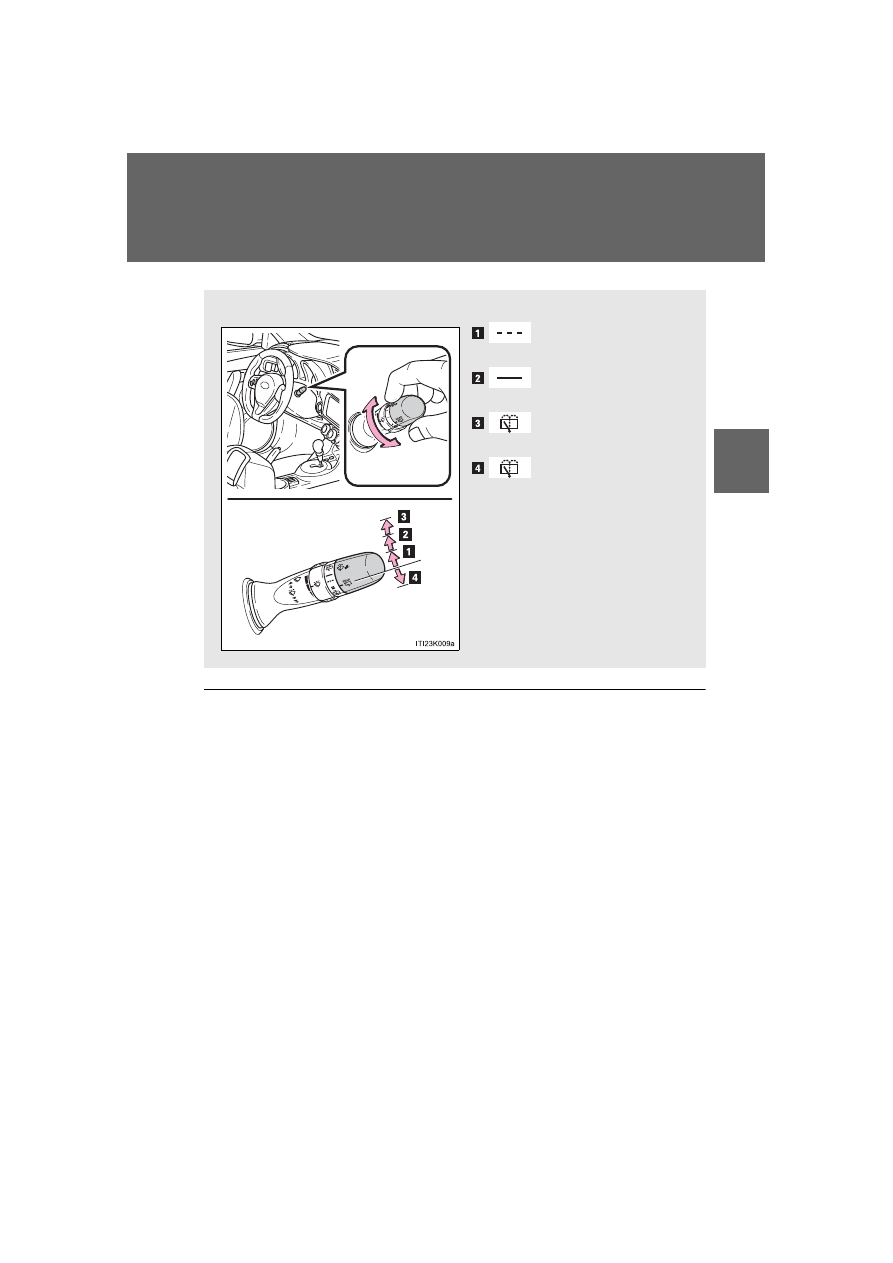Scion tC. Instruction - part 14

209
2-3. Operating the lights and windshield wipers
2
When
d
riving
tC_OM_OM21056U_(U)
■
The rear window wiper and washer can be operated when
Vehicles without a smart key system
The engine switch is in the “ON” position
Vehicles with a smart key system
The “ENGINE START STOP” switch is in IGNITION ON mode.
■
If no washer fluid sprays
Check that the washer nozzle is not blocked if there is washer fluid in the
washer fluid reservoir.
Type B
Intermittent window
wiper operation
Normal window wiper
operation
Washer/wiper dual
operation
Washer/wiper dual
operation